Empower the Young Adult Reader: A Parent's Guide to Books for 12th Graders


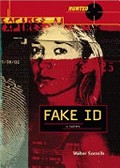
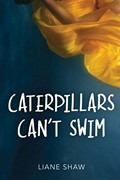


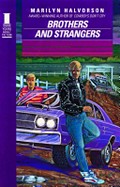

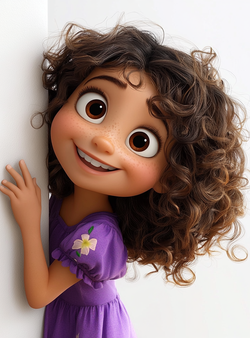
Introduction
Welcome, 12th-grade parents! Your child's reading now assumes a new dimension in his or her growth into adulthood. Now that they have grown old enough, when young adults are ready for the depths of varied perspectives, challenging narratives, and complex themes, it is a preparation to layout a world view for them in higher education onward. This course should then lead you through an exciting world of 12th-grade literature and teach you how to select appealing books, make the most of your reading, and hopefully give you a lifelong love of reading.
These books are strong facilitators of self-discovery, critical thinking, and intellectual growth as your child reaches the tail end of his or her high school career. Running the gamut from contemporary fiction to historical narrative to provocative nonfiction, the books in the 12th-grade curriculum provide expansive avenues for personal growth toward understanding a variety of social issues and their equipping for later life.
Reading Books: Its Benefits among 12th Grade Students
Reading at such tender years brings immense benefits aside from entertainment and academic performances:
-
Advanced Critical Thinking: Novels such as "The Lie Tree" by Frances Hardinge instigate complication and theme in plots that test one's mind and, hence, build a higher level of thinking for college academics.
-
Emotional Intelligence: The novel Salt to the Sea by Ruta Sepetys spreads awareness about various aspects of World War II. It informs adolescents in a lighter manner but at the same time makes them empathize with other people for the bad time they went through.
-
Social Awareness: Books like "Long Way Down" by Jason Reynolds and "Concrete Rose" by Angie Thomas are ways the readers may be presented with current social ills and look through other lenses.
-
Cultural Competence: Books like "Clap When You Land" by Elizabeth Acevedo build, within readers, an exploration of diverse cultures and experiences necessary for global awareness nurtured in today's interdependent world.
-
Historical Comprehension: Through historical novels like "The Cat I Never Named" by Amra Sabic-El-Rayess, students learn real-life examples of real events, allowing them to relate to history in a very personal manner.
-
Ethical Decision-Making: Novels such as "A Good Girl's Guide to Murder" by Holly Jackson present moral dilemmas, encouraging readers to think critically about ethics and justice.
-
Literary Analysis Skills: This habituates students with sophisticated reading to help them later in college literature classes for the interpretation and analysis of difficult texts.
-
Vocabulary Building: With different writing styles and complicated stories, one automatically improves his vocabulary, which will help in standardized tests and further studies.
-
Empathy and Perspective-taking: It is the book that allows one to understand the various aspects of life and thus use empathy.
-
Some books of this genre set off a person's fantasy and the creativeness of one's mind, thus "Eragon" by Christopher Paolini and "The Ten Thousand Doors of January" by Alix E. Harrow.
How to Choose Books Suited for 12 Graders
Selection of suitable and interesting books for 12th graders depends upon the following points:
-
Reading Level: Books should provide a certain challenge but mustn't frustrate. "The Lie Tree" contains rich language with complex themes that stretch comprehension.
-
Diverse perspective: Expose the students to other cultures and experiences. Recommendation, "Clap When You Land" by Elizabeth Acevedo.
-
Contemporary Relevance: Books like "Concrete Rose" by Angie Thomas can engage teens with current themes and relatable characters.
-
Genre Variations: Let genres vary: contemporary fiction vs. historical fiction, mystery vs. fantasy, vs. nonfiction.
-
Thematic Depth: Subjects in books must carry deep life themes relevant to adolescents, such as identity, social justice, and coming-of-age experiences.
-
Literary merit: Books that received awards or critical acclaim are likely to be well-written with strong messages.
-
Challenging Content: Be sensitive to your family values, yet not avoiding the books of tough subjects, as many times this is a setup to create very positive learning opportunities that facilitate great conversations.
-
College Readiness: Books constituting general parts of college curricula or discussing themes or styles likely to be considered in higher education studies.
Books Recommended for 12th Graders
Following are some of the best choices among them for 12th-grade students, together with a short description:

The Pluto files
By Tyson, Neil deGrasse
Description: Pluto in culture -- Pluto in history -- Pluto in science -- Pluto's fall from grace -- Pluto divides the nation -- Pluto's judgment day -- Pluto the dwarf planet -- Pluto in the elementary school classroom -- Plutologue -- Appendix A: Pluto data (2008) -- Appendix B: "Planet X" (complete lyrics by Christine Lavin) -- Appendix C: "I'm your moon" (complete lyrics by Jonathan Coulton) -- Appendix D: "Pluto's not a planet anymore" (complete lyrics by Jeff Mondak and Alex Stangl) -- Appendix E: Official media response from the author regarding the Rose Center's exhibit treatment of Pluto -- Appendix F: Resolution of the International Astronomical Union on the definition of a planet -- Appendix G: New Mexico Legislation relative to Pluto's planetary status -- Appendix H: California legislation relative to Pluto's planetary status.

How to like yourself
By Bradshaw, Cheryl
Description: "Dont let your inner critic get in the way of being confident! How to Like Yourself offers a quirky, inspiring, and practical guide to help you overcome feelings of self-criticism, improve self-esteem, and be the true star in your life,"--Amazon.com.

Fake ID
By Sorrells, Walter
Description: After a lifetime of moving and assuming new identities, sixteen-year-old Chass begins to piece together the disturbing past that haunts her and her mother and which involves a mysterious tape, a deceased popular singer, and the secrets of several people in a small Alabama town.

Caterpillars can't swim
By Shaw, Liane
Description: "Two boys look to the water for escape, but for very different reasons. For sixteen-year-old Ryan, the water is where he finds his freedom. Ever since childhood, when he realized that he would never walk like other people, he has loved the water where gravity is no longer his enemy. But he never imagined he would become his small town's hero by saving a schoolmate from drowning. Jack is also attracted to the water, but for him it's the promise of permanent escape. Disappearing altogether seems better than living through one more day of high school where he is dogged by rumors about his sexuality. He's terrified that coming out will alienate him from everyone in town - and crush his adoring mother. Ryan saves Jack's life, but he also keeps his secret. Their bond leads to a grudging friendship, and an unexpected road-trip to Comic Con with Ryan's best friend Cody, the captain of the swim team. The unlikely trio ends up subverting preconceptions and prejudices of their own and of those around them."--

Montgomery Lake High #4: The Battle for Innocence
By Padula, Stacy

Who is AC?
By Larson, Hope
Description: "Meet Lin, an average teenage girl who is zapped with magical powers through her cell phone. But just as superpowers can travel through the ether, so can evil. And as Lin starts to get a handle on her powers (while still observing her curfew!) she realizes she has to go head to head with a nefarious villain who spreads his influence through binary code"--Provided by publisher.

Brothers and strangers
By Halvorson, Marilyn
Description: "Gamini books."

Sea Star
By Henry, Marguerite
Description: Each year along the Eastern seacoast, the wild ponies of Assateague Island are driven across a narrow strip of ocean to Chincoteague. There the shaggy, untamed ponies are sold. When young Paul and Maureen Beebe rescue a drowning newborn foal, they take her home to nearby Pony Farm. Now the foal has grown into their free-spirited pony, Misty, and has been the subject of a popular children's book. One day movie-makers appear on the farm, asking to make a motion picture about Misty and the other wild ponies. Paul and Maureen are beside themselves with excitement-until they learn their beloved pet will have to leave the farm. The children's surprising solution to their problem has touched the hearts of youngsters for generations. Marguerite Henry based this beguiling sequel to Misty of Chincoteague on real-life people and animals. Narrator John McDonough's warm-hearted performance whisks readers back to a gentler time and place.
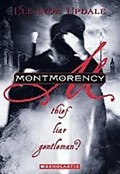
Montmorency
By Updale, Eleanor
Description: London, 1875 When a petty thief falls through a glass roof while fleeing from the police, it should have been the death of him. Instead, it marks the beginning of a whole new life. The thierf is sewn back together by a brilliant young surgeon, and before long he's become the chief exhibit at medical gatherings across the city. it's at one of these learned discussion that hefirst hears abount an amazing additon to the London streets - the sewer system - and an idea begins to form.
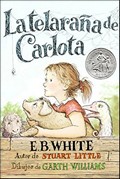
Las telara as de Carlota
By White, E. B
Description: Wilbur, the pig, is desolate when he discovers that he is destined to be the farmer's Christmas dinner until his spider friend, Charlotte, decides to help him.
Tips for Maximizing Your Child's Learning from Books
-
Critical Thinking: Discuss themes, motives of characters, and sociological implications of each story. In "Long Way Down," discuss reasons for continuance of violence and possible solutions.
-
Make Real-World Connections: Help your teen relate book events to current affairs or personal experiences. "Concrete Rose" can spark discussions about systemic inequality and personal responsibility.
-
Encourage Different Perspectives: Discuss with your teenager the perspective of various characters, especially for those books, like "Clap When You Land", that are filled with complicated family matters and issues surrounding cultural differences.
-
Add Non-Fiction: Combine fiction with relevant non-fiction to give more depth and substance. For instance, with "The Cat I Never Named," one would read non-fiction about the Bosnian War.
-
Encourage writing: Suggest keeping a journal or attempting creative writing based on what is read. This will help internalize complicated ideas and develop writing skills.
-
Utilize Technology: Avail online resources, book-related podcasts, or author interviews to add more depth to your reading.
-
Book Club: It allows for a discussion with peers, hence more fun and better understanding. This would also help them engage in discussions of literature at a college level.
-
Respect Choices: While guiding them towards quality literature, give your teen the freedom of choice in reading.
-
Setting a reading goal helps: have your teenager set his own goal in terms of numbers or even trying new genres.
-
Modeling it herself or himself: This is sharing what one reads and is currently reading to model lifelong learning.
Why Buy Books for your 12th Graders on MoBoo
At MoBoo, we aim to nurture a breed of advanced young adult readers and assist parents in raising their children through literature:
-
Curated Selection: Our expert staff hand selects books meeting the age appropriateness, appeal, and depth required for 12th graders.
-
Diverse Collection: We actively seek and acquire books representing a wide range of cultures, experiences, and perspectives, such as those on our recommended list.
-
Well-read Staff: Our employees are trained to recommend books, taking into consideration your teenager's interests, reading level, and values important to your family.
-
College Preparation Resources: We provide guides about commonly required books in college literature courses to help your teenager be prepared for higher education.
-
Ongoing Events: Author talks, book clubs, and other literature events, especially for young adults, are held at the library.
-
Parent Resources: Handouts and workshops on how parents can be a resource for their teenager in reading and discussing tougher topics.
-
Personalized Recommendations: Let our booksellers tailor individualized reading lists for your child based on their tastes, past reading experience, and future aspirations.
-
Community Partnerships: It collaborates with institutions, including schools and libraries within the community, for literacy/education promotions.
-
Conveniences of Using the Internet can't get to the store? Our user-friendly website is available for browsing from the convenience of your own home.
-
Book Box Subscription: Avail curated monthly book subscription boxes designed right for your 12th grader's interests and introduce them to new authors and genres.
Guiding through Mature Themes in Young Adult Literature
As the 12-graders continue with increasingly mature themes in literature, parents should be prepared:
-
Open Communication: Provide your teenager with a safe place to discuss challenging content that may arise with the reading.
-
Give a Background Understanding of Sensitive Issues: Inform your teenager about the time period or social backgrounds of books like "It Ends with Us."
-
Critical Thinking: It's one good avenue to stir discussions on social issues, ethics, and even personal values.
-
Respect Emotional Reactions: Sometimes books can be emotionally activating; validate and process those feelings with your teenager.
-
Further Reading: Anything that one may have a question or concern about from the book, find credible sources to further the education/discussion.
Frequently Asked Questions
A: Most great books for 12th graders will contain a mix of contemporary fiction, classic literature, and historical fiction, and some serious and complex nonfiction. Look for books with multidimensional characters, compelling plots, and themes that will push critical thinking. Books such as "The Lie Tree" or "Concrete Rose" are layered texts that have challenged and engaged the young adult reader on so many levels.
A: Make reading part of the family culture. Share over dinner what you read that was interesting, read what your teen is reading so you can discuss, and make books relevant to your teen's interest, future college plan, or a current event to peak their interest. The same goes for allowing your teen to choose some of the reading material and then expands their genres without being too pushy.
A: Although most of these books are single titles, the following series are suggested for this reader: the "Inheritance Cycle" series beginning with "Eragon" by Christopher Paolini; the "Inheritance Games" series by Jennifer Lynn Barnes; and "The Hate U Give" and its companion novels by Angie Thomas. Series novels with more complex narrative and character development are fitting for the advanced young adult reader.
A: Find out why that's going wrong. Maybe they simply haven't found a good genre or text format yet. Check to see if audiobooks, graphic novels, or books about hobbies or career areas of interest would entice them. Books like "A Good Girl's Guide to Murder" will directly appeal to teens into true-crime podcasts or detective shows. Relating reading to their college preparation or to their future career goals could also motivate them.
A: Absolutely, it will! Reading progresses both your vocabulary and ability in areas of comprehension and critical thinking. It may also introduce the student to different types of writing and complex ideas, thus smoothing the pathway more completely into college. Books such as "The Cat I Never Named" will help them learn more about global events and culture. Books like "The Sun Is Also a Star" help them develop empathy for complex characters/situations that they may have to go through while reading at a collegiate level. Being a good reader can even be used as an ace for college application essays and interviews.
Keep in mind that every child travels at his or her own pace in reading. Most importantly, make it rewarding and pleasant so that a love of books and learning toward later university and other intellectual pursuits is established. Happy reading!

